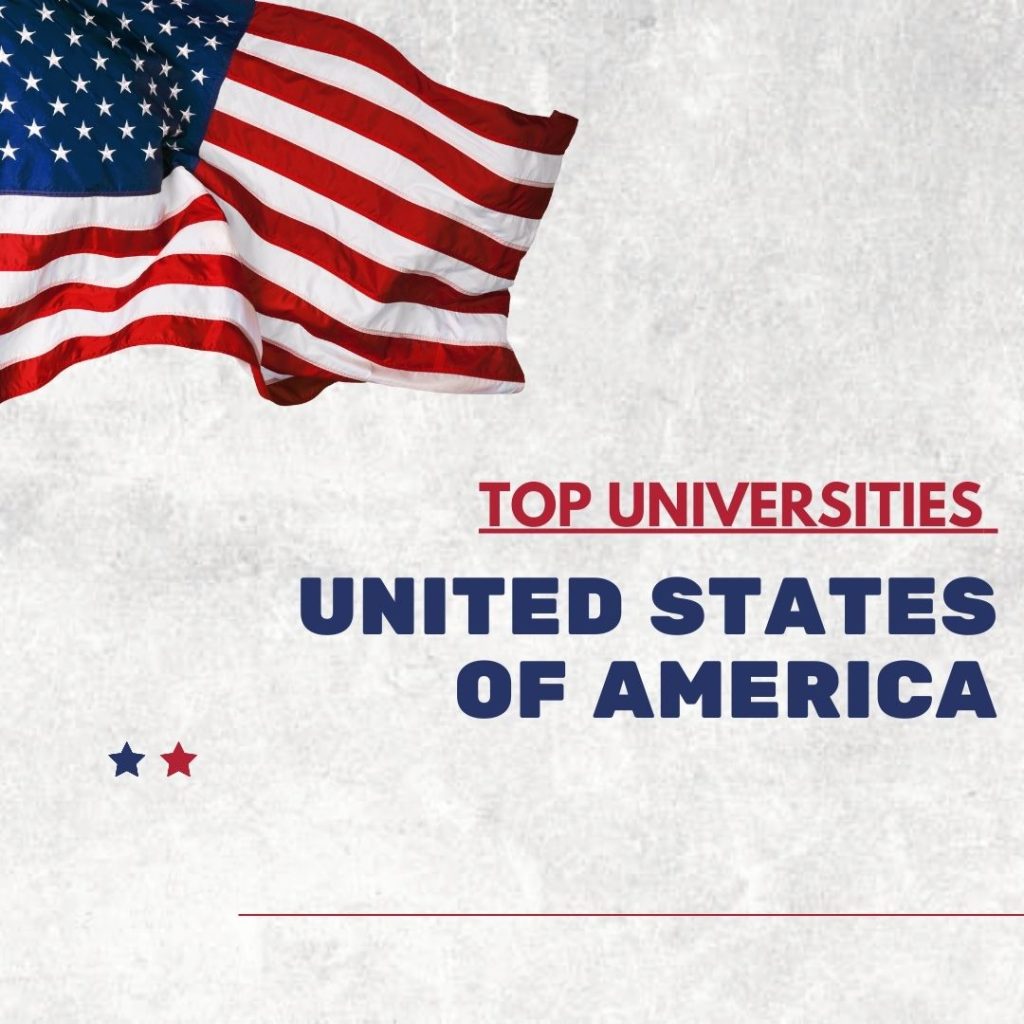Planning to study abroad in 2025? You’re about to embark on one of life’s most transformative journeys. Studying in a foreign country not only provides world-class education but also offers invaluable cultural experiences and global networking opportunities that can shape your future career.
With countless universities across four of the most popular study destinations—the United States, United Kingdom, Canada, and Australia—how do you choose the right one? Let’s dive into the top institutions, their unique offerings, and everything you need to know about studying abroad in 2025.
United States
The US remains the world’s leading destination for international students, with over 1 million foreign students choosing American institutions annually. What makes the US education system unique is its flexibility, diversity of programs, and cutting-edge research opportunities.
Ivy League Universities
When we talk about the best colleges USA has to offer, the Ivy League institutions consistently top the charts:
- Harvard University – Beyond its prestigious reputation, Harvard offers generous financial aid packages for international students, making this dream institution more accessible than you might think.
- Stanford University – While technically not an Ivy League school, Stanford ranks among the world’s elite universities, particularly for technology, entrepreneurship, and innovation programs.
- Massachusetts Institute of Technology (MIT) – For STEM enthusiasts, MIT offers unparalleled research opportunities and industry connections.
- Princeton University – Known for its exceptional undergraduate teaching and generous financial aid policies, Princeton meets 100% of demonstrated financial need for all admitted students, including internationals.
Public Universities
For those seeking top-quality education at more affordable tuition rates, American public universities offer excellent value:
- University of California, Berkeley – A powerhouse in research with strengths across disciplines from engineering to social sciences.
- University of Michigan, Ann Arbor – Renowned for its comprehensive programs and vibrant campus life.
- University of Texas at Austin – Offers strong programs in business, engineering, and computer science with a growing international student community.
Liberal Arts Colleges
For a more personalized educational experience with smaller class sizes and close faculty interaction:
- Amherst College – Offers need-blind admissions for international students, a rare policy that evaluates applications without considering financial need.
- Williams College – Known for its tutorial-style classes and close student-faculty relationships.
- Pomona College – Located in sunny California, it combines rigorous academics with a supportive community.
Scholarship Opportunities in the US
Financing education in the US can be challenging, but numerous international student scholarships exist:
- Fulbright Foreign Student Program – A prestigious, government-sponsored opportunity for graduate students.
- Hubert H. Humphrey Fellowship Program – For professionals seeking non-degree academic study.
- Institution-specific scholarships – Many universities offer merit-based funding specifically for international applicants.
United Kingdom
The UK offers internationally recognized qualifications with shorter program durations compared to many countries—typically three years for undergraduate degrees and one year for master’s programs.
Russell Group Universities
The Russell Group represents 24 world-class, research-intensive universities:
- University of Oxford – The world’s oldest English-speaking university continues to dominate global rankings, offering tutorial-based teaching and college system that creates smaller communities within the larger institution.
- University of Cambridge – Similar to Oxford in prestige and teaching approach, Cambridge particularly excels in sciences and mathematics.
- Imperial College London – A science-focused powerhouse that ranks among the world’s top 10 universities, particularly strong in engineering, medicine, and business.
- London School of Economics and Political Science (LSE) – The world’s leading dedicated social science institution, particularly strong in economics, law, and international relations.
UK University Rankings and What They Mean
When examining UK university rankings, consider these key assessment factors:
- Teaching quality – Measured through the Teaching Excellence Framework (TEF)
- Research output – The Research Excellence Framework (REF) evaluates research quality
- Student satisfaction – Based on the National Student Survey
- Graduate employability – Tracking post-graduation career success
- International outlook – Measuring global diversity and collaboration
Post-Brexit Considerations for International Students
While Brexit has changed some aspects of studying in the UK:
- The new Graduate Route visa allows international students to stay and work for 2 years after graduation (3 years for PhD graduates)
- EU students now need student visas like other international students
- New scholarship schemes like the Turing Scheme have replaced Erasmus+ for UK students
Canada
Canada has emerged as an increasingly popular destination due to its high-quality education, relatively affordable tuition, and immigrant-friendly policies.
Top Universities in Major Cities
- University of Toronto – Canada’s highest-ranked institution excels across disciplines from humanities to sciences, with three distinct campuses offering different environments.
- McGill University – Located in Montreal, McGill offers a European flair with North American education quality and is particularly strong in medicine and arts.
- University of British Columbia – Situated in Vancouver, UBC offers stunning natural surroundings alongside top-tier programs, particularly in sustainability and Asian studies.
- University of Alberta – Located in Edmonton, it’s renowned for research and natural resource management programs.
Post-Study Work Opportunities
One of the biggest advantages when you study in Canada is the excellent post-graduation work opportunities:
- The Post-Graduation Work Permit Program (PGWPP) allows international graduates to work in Canada for up to 3 years
- Work experience gained can count toward permanent residency applications
- No restriction on the type of employment (unlike some countries that limit work to your field of study)
International Student Pathways to Permanent Residency
Canada offers clear immigration pathways for international graduates:
- Express Entry – The Federal Skilled Worker Program gives additional points for Canadian education
- Provincial Nominee Programs – Many provinces have streams specifically for international graduates
- Start-up Visa Program – For entrepreneurial graduates with innovative business ideas
Australia
Australia combines world-class education with an enviable lifestyle and robust post-study work rights.
Group of Eight Universities
Australia’s equivalent to the Ivy League or Russell Group is the “Group of Eight” (Go8):
- University of Melbourne – Consistently Australia’s top-ranked university, known for its “Melbourne Model” of education that combines breadth and depth.
- Australian National University (ANU) – Located in the capital Canberra, ANU has exceptional research output and strong government connections.
- University of Sydney – Australia’s oldest university offers an iconic campus experience in the heart of Sydney.
- University of Queensland – Known for innovation and research, particularly in biological sciences.
Regional Universities with Special Benefits
Studying at regional institutions in Australia offers unique advantages:
- University of Tasmania – International graduates can access up to 4 years of post-study work rights.
- Charles Darwin University – Located in Darwin, offering unique research opportunities in tropical and desert environments.
- James Cook University – Specializes in marine biology and tropical medicine with campuses near the Great Barrier Reef.
Regional benefits include:
- Additional post-study work rights (1-2 years extra)
- Regional migration points for permanent residency pathways
- Often lower cost of living compared to major cities
Australian Scholarship Programs
Several scholarship options exist for international students:
- Australia Awards – Government-funded scholarships primarily for developing countries
- Destination Australia – Scholarships for study at regional campuses
- Research Training Program – For postgraduate research students
- University-specific scholarships – Most best universities Australia has to offer provide merit-based funding opportunities
Comparing Study Abroad Destinations
With so many options across these four countries, how do you choose? Let’s compare key factors.
Tuition Fees Comparison
Undergraduate Programs
A general tuition fees comparison for international students (annual costs in USD):
- USA: $25,000-$60,000+ (public vs. private)
- UK: $15,000-$40,000 (varies by program)
- Canada: $15,000-$35,000 (varies by province and program)
- Australia: $15,000-$40,000 (varies by institution and program)
Graduate Programs
- USA: $20,000-$70,000+ (varies widely by program type)
- UK: $17,000-$50,000 (one-year master’s programs offer good value)
- Canada: $12,000-$35,000 (competitive rates for quality)
- Australia: $20,000-$42,000 (research programs often have more funding)
Living Costs Analysis
Monthly living expenses (excluding rent) in major student cities:
- USA: $1,000-$2,000 (higher in Boston, NYC, San Francisco)
- UK: $850-$1,500 (London significantly higher)
- Canada: $800-$1,200 (varies by city)
- Australia: $1,000-$1,500 (Sydney and Melbourne are costlier)
Post-Study Work Visa Options
Comparing post-study work visa opportunities:
- USA: Optional Practical Training (OPT) offers 12 months, with STEM extension of 24 additional months
- UK: Graduate Route provides 2 years (3 for PhD graduates)
- Canada: Post-Graduation Work Permit for up to 3 years, tied to program length
- Australia: Temporary Graduate visa (subclass 485) for 2-4 years depending on qualification level and location
Application Process and Requirements
Key Deadlines for 2025 Intake
For fall/autumn 2025 entry, generally:
- USA: Early Decision/Early Action: November 2024; Regular Decision: January-March 2025
- UK: UCAS deadline January 15, 2025 (October 15, 2024 for Oxford/Cambridge/medicine)
- Canada: Varies by institution, typically January-March 2025
- Australia: Varies by institution, often November 2024-February 2025 for Semester 1
Standardized Tests Requirements
Most university admission processes require standardized testing:
- English proficiency – IELTS, TOEFL, PTE, or Duolingo English Test
- Academic aptitude – SAT/ACT (mostly USA undergraduate), GRE (graduate programs), GMAT (business schools)
Country-specific requirements:
- USA: Most competitive schools require SAT/ACT for undergraduates
- UK: Specific course-related tests for certain programs
- Canada: Generally only English proficiency tests required
- Australia: English proficiency and occasionally program-specific requirements
Conclusion
Choosing the right destination for your international education is a deeply personal decision that depends on your academic interests, career goals, budget, and lifestyle preferences. Each of these four countries—the US, UK, Canada, and Australia—offers excellent study abroad programs with distinct advantages.
The US provides unparalleled diversity of institutions and programs; the UK offers prestigious, intensive courses of shorter duration; Canada combines quality education with clear immigration pathways; and Australia balances academic excellence with an enviable lifestyle and growing research prominence.
As you plan for 2025, consider not just the university rankings but also scholarship opportunities, post-study work rights, and how each destination aligns with your long-term goals. With thorough research and careful planning, your international education can be the foundation for a successful global career.
FAQs About Studying Abroad in 2025
1. How early should I start preparing my applications for 2025 intake?
Ideally, begin 12-18 months before your intended start date. This gives you ample time for standardized tests, essay preparation, securing recommendation letters, and meeting early deadlines. For particularly competitive programs or scholarships, starting even earlier can be advantageous.
2. Are there any new visa policies I should be aware of for 2025?
Immigration policies frequently evolve. The UK continues to develop its post-Brexit approach to international students, while Australia and Canada regularly update their points-based systems. The US may also make changes following the 2024 presidential election. Check the official immigration websites of your target country approximately 6-9 months before applying.
3. How can I finance my international education beyond scholarships?
Beyond scholarships, consider education loans from your home country, international student loans (more common in the US), part-time work opportunities (subject to visa restrictions), co-op or work-integrated learning programs, family sponsorship, or deferred payment plans offered by some institutions. Many students combine multiple funding sources.
4. Which country offers the best value for money when considering both education quality and costs?
Currently, Canada often provides the best overall value, combining relatively lower tuition with high-quality education and excellent post-graduation opportunities. Regional universities in Australia also offer good value, particularly with their additional post-study work rights. However, “best value” depends on your specific program, as specialized fields might be stronger in particular countries.
5. How will climate change policies affect international education choices in 2025?
Sustainability is increasingly important in higher education. Many universities now showcase their climate commitments and green campus initiatives. For programs in environmental science, renewable energy, or sustainable development, look for institutions with strong research records in these areas. Some scholarships now specifically target students pursuing climate-related studies, reflecting growing global priorities.


